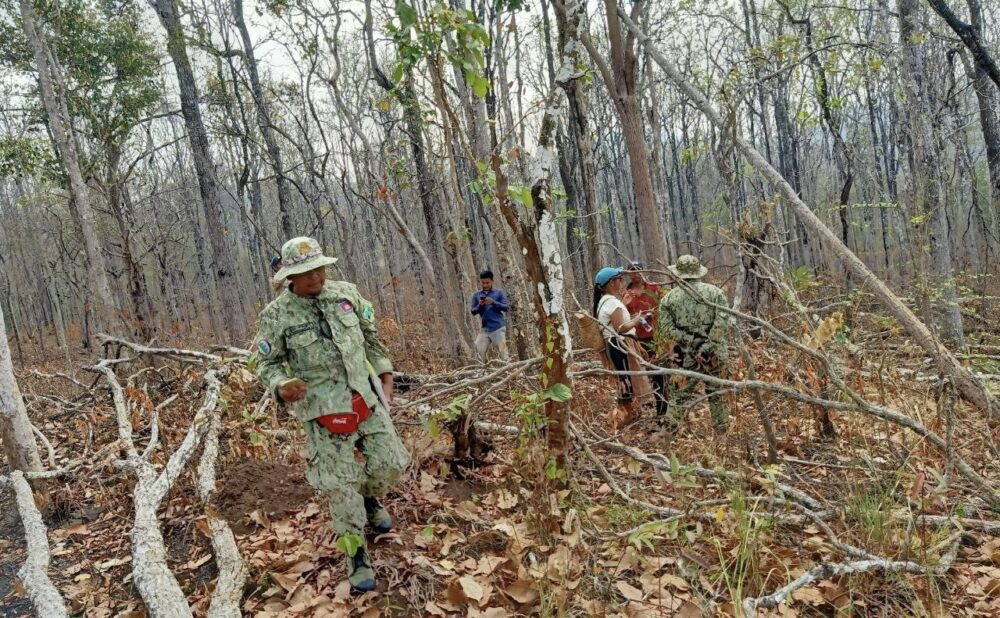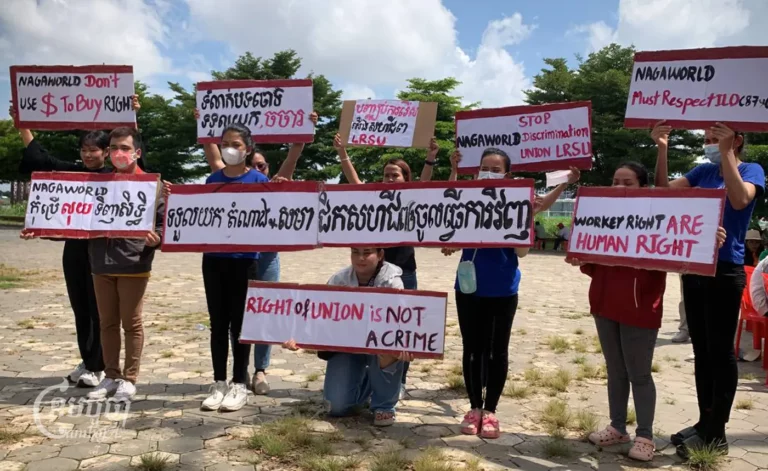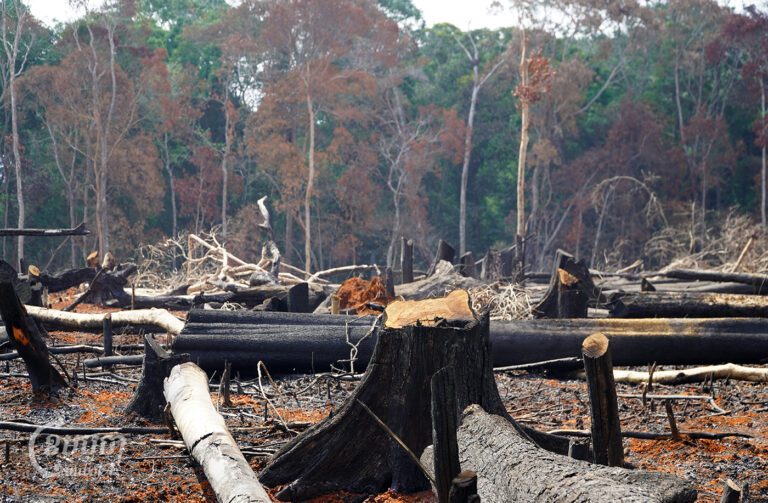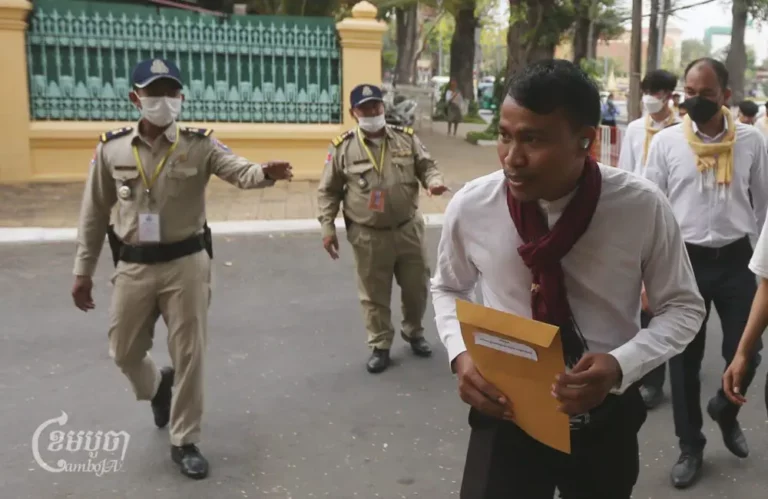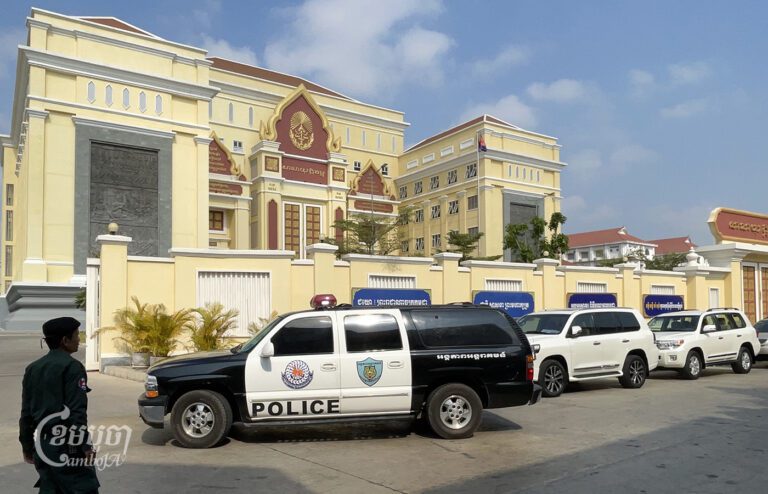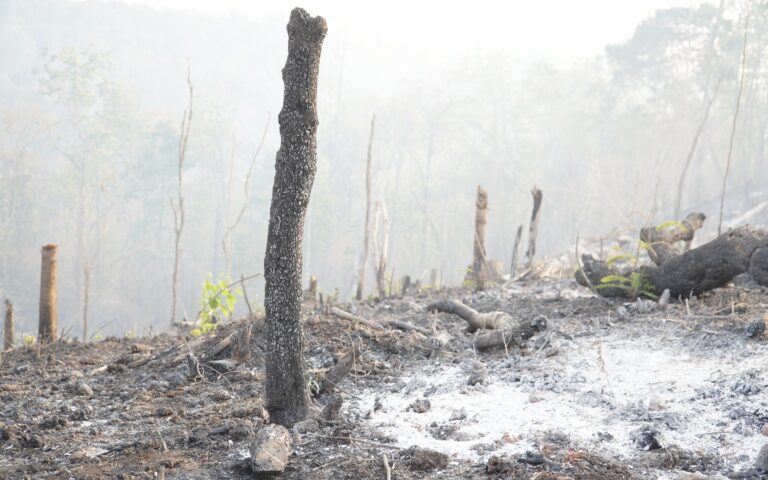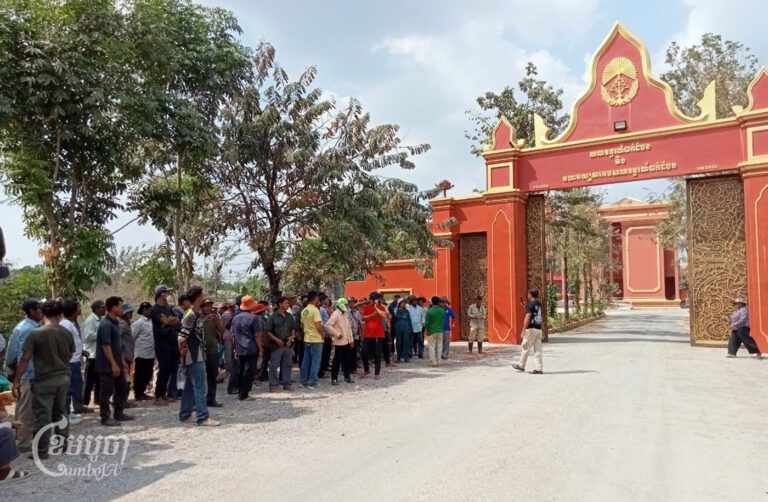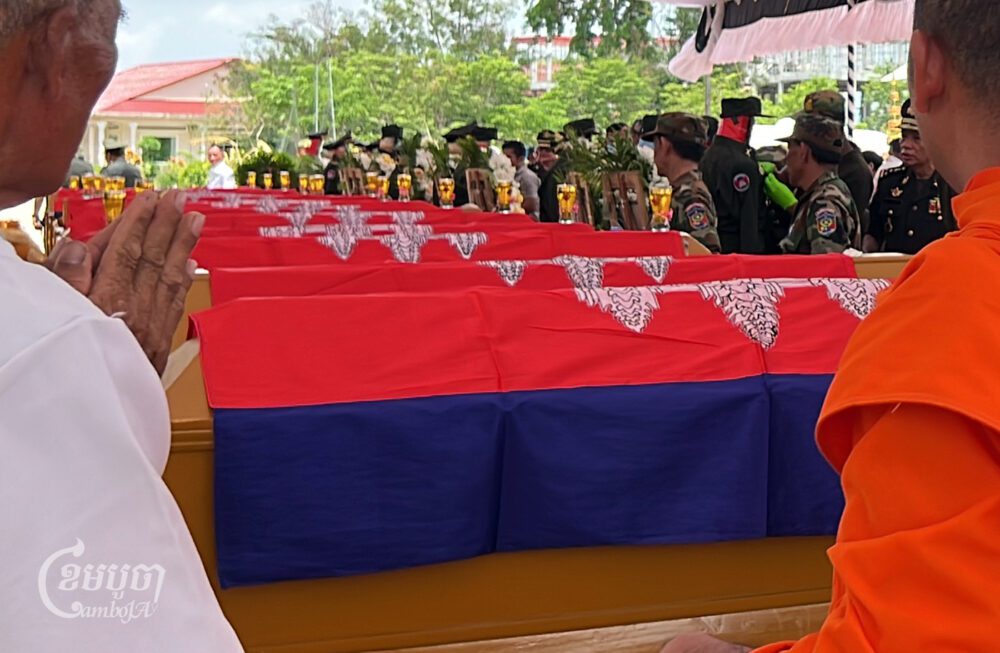Mondulkiri provincial court on Monday questioned NGO rights group Adhoc official and four Bunong natives after land brokers and fellow villagers filed a defamation and incitement complaint against them. The complaint was made after the suspects submitted evidence of chopped trees and encroachment by the plaintiffs, made up of land brokers and a few villagers.
According to the February 3, 2024 court summons, deputy prosecutor Seav Ngy Chhorn ordered the five people, Bi Vanny, Adhoc provincial coordinator, and minority indigenous people Chen Vanna, Sreng San, Rouen Heng, and Ngin Channa, to present themselves at the Mondulkiri provincial court from March 1 to 4, 2024.
The plaintiffs, who made the complaint, consist of Ploeun Pyin, Nhev Mao, and Soeun Sam, where one or two are known to the villagers as they are from the same village.
Vanny, who was in court on Monday, said the prosecutor asked him questions relating to the information and evidence he submitted about the alleged forest crime and land encroachment at the indigenous people’s land in Poulong village of Sen Monorom city’s Romnea commune.
He said community residents had requested his organization’s help to submit the evidence in court to seek justice as they lacked knowledge of the law.
The evidence was submitted in March 2023, following which the court asked him to appear in November that year. At the time, he said, he told the court that he was only doing what the villagers had requested of him.
On November 20, 2023, a week after Vanny appeared in court, the plaintiffs sued him for defamation and incitement to discrimination, which he denied being involved.
Vanny asked the court to drop all charges against him because he was only providing information to the prosecutor and had no intention of violating the plaintiffs’ rights or harming them.
“We ask the prosecutor to investigate the facts of the case. I hope that the court is an independent institution, a place where justice is upheld, to decide if there was an encroachment, and if it’s related to the three individuals who filed the complaint against me and the four indigenous people,” Vanny said.
He urged the court to quickly investigate and fairly decide on the case. “We are going to court because we all want justice,” he said.
Relating his experience, Chen Vanna, who was questioned on Monday, said the prosecutor questioned him about the land encroachment evidence, which was submitted to court. He said the evidence was submitted because they want to prevent deforestation.
“I answered that I want to intervene to protect our natural resources [forest],” he said.
The prosecutor questioned whether the community land had indeed been encroached, to which Vanna replied, “They [plaintiffs] cut it and if the court doesn’t believe, they can go and see it for themselves.”
“I am not the only one, the people of Poulong village have put in a [petition] everywhere to prevent the community land from being cut down and taken over by the [plaintiffs] as their own land. We want it retained as state property, a common property where we have a forest. But when I tried to stop this, they said I defamed them,” Vanna said.
According to him, the plaintiffs are also residents of Poulong village and the purpose of clearing the community land was because it would be included as indigenous people’s land before claiming that it was “an old plantation”.
“I ask people who are competent to help us preserve the forest and natural resources. The area is a public forest, it’s not owned by anyone. I do not want that land [for me], I just want us all to use it together,” he added.
Similarly, another suspect, Bunong native Ngin Channa, felt that the accusation was unfair because the land dispute happened in the community in Poulong village.
She told the court she was not involved in any incitement, but all the people in the Poulong village need to leave the community land so that it can survive.
“Because we, the Bunong people, go in there to collect resin and vegetables. There are also a lot of cattle there,” Channa said. If 500 to 1,000 hectares of the forest are cut down, there will be no forest, she shared. The trees are like fruits to the community, for instance, resin, which is available during dry and rainy seasons.
When the prosecutor asked who confiscated the land brokers’ machine used to cut the trees, she admitted that the community did. The machine was sent to the community representative and the commune forestry administration.
She said the community people volunteered to protect the land from being lost.
“I would like to request the court in Mondulkiri to find the perpetrators, as in who is behind those who dare to do this [clear the land]. There are efforts to prevent [encroachment] [via continuous patrolling], but how can they [land brokers] still do that?” Channa asked.
She requested the government and the relevant authorities to look into the issue, adding that the evidence has been submitted to the Ministry of Interior and Ministry of Agriculture, Forestry and Fisheries.
“Please intervene in this matter so that there is no further encroachment and please drop the charges so that no one is summoned again. Every day we have nothing. We are farmers, so it [the case] disrupts our activity and we cannot do any other work. I’m stuck with a bank loan,” Channa said.
According to Channa, she is now looking for additional evidence to submit to the court, asserting that encroachment is still ongoing.
Mondulkiri provincial deputy governor Cheak Mengheang told CamboJA on Wednesday afternoon that there was daily encroachment, but that it cannot be proven currently. He asked that the information be checked first because it was unclear.
Romnea commune chief Phy Ngouk could not be reached for comment.
NGO rights group Licadho operation director Am Sam Ath believed that citizens who understand and dare to file evidence relating to the protection of collective property, community or state property should be encouraged. They should not be prosecuted for any crime.
But if they are prosecuted, it breaks the spirit of the people who participate in the protection of the environment.
“It is akin to a restriction on the rights of civil society who work to protect the common interests of the forest, natural resources, and the environment,” Sam Ath said. “If this problem persists, no one will dare report problems at the local or community level,” he said.
He also called on the court officials to drop charges against Adhoc’s Vanny and the four local residents who are devoted to protecting the forests.
“I understand that when there is a complaint, the court must summon the people for questioning, but hopefully it will look at all the issues, and the rights and freedom of people,” Sam Ath said.
Deputy prosecutor Seav Ngy Chhorn told CamboJA that the court has yet to decide what is the next procedure after it finished questioning relevant parties involved in the case. The court needs to further question witnesses as both parties have submitted additional evidence.
Early this February, the ruling CPP also filed a lawsuit against outspoken human rights group Adhoc Soeng Senkaruna for allegedly making a comment believed to provoke unrest and incite hatred against them. The comment was also allegedly intended to affect the Senate election on February 25, 2024, according to the complaint published by Fresh News.
In the complaint, CPP asked the court to consider their request to indict and sentence Soeng Senkaruna in accordance with the law. A compensation of two billion riel (approximately $500,000) has also been demanded from him.
Political analyst Em Sovannara opined that in Cambodia today, the “justice system is only available for the influential and the wealthy”. He alleged that “ordinary people, advocates, and those who do social work seem to face the most problems”, which he sees as an unfavorable task for the democratic environment in Cambodia.
“In general, if we look at the characteristics of civil society organizations, advocates, activists and political parties, they seem to be shrinking. There is no space for political freedom and freedom of expression. The Cambodian society lacks a system of justice that gives us confidence,” he said.
In this aspect, he would like to see a return to the principles of democracy prescribed under the Constitution and by the United Nations Charter and Paris Peace Agreements. They clearly state the principles of multi-party liberal democracy where Cambodians can seek justice.
He added that if there is only a theoretical system of the policy, but without practical application, Cambodians would be affected by the injustice in a country that practices democracy.


